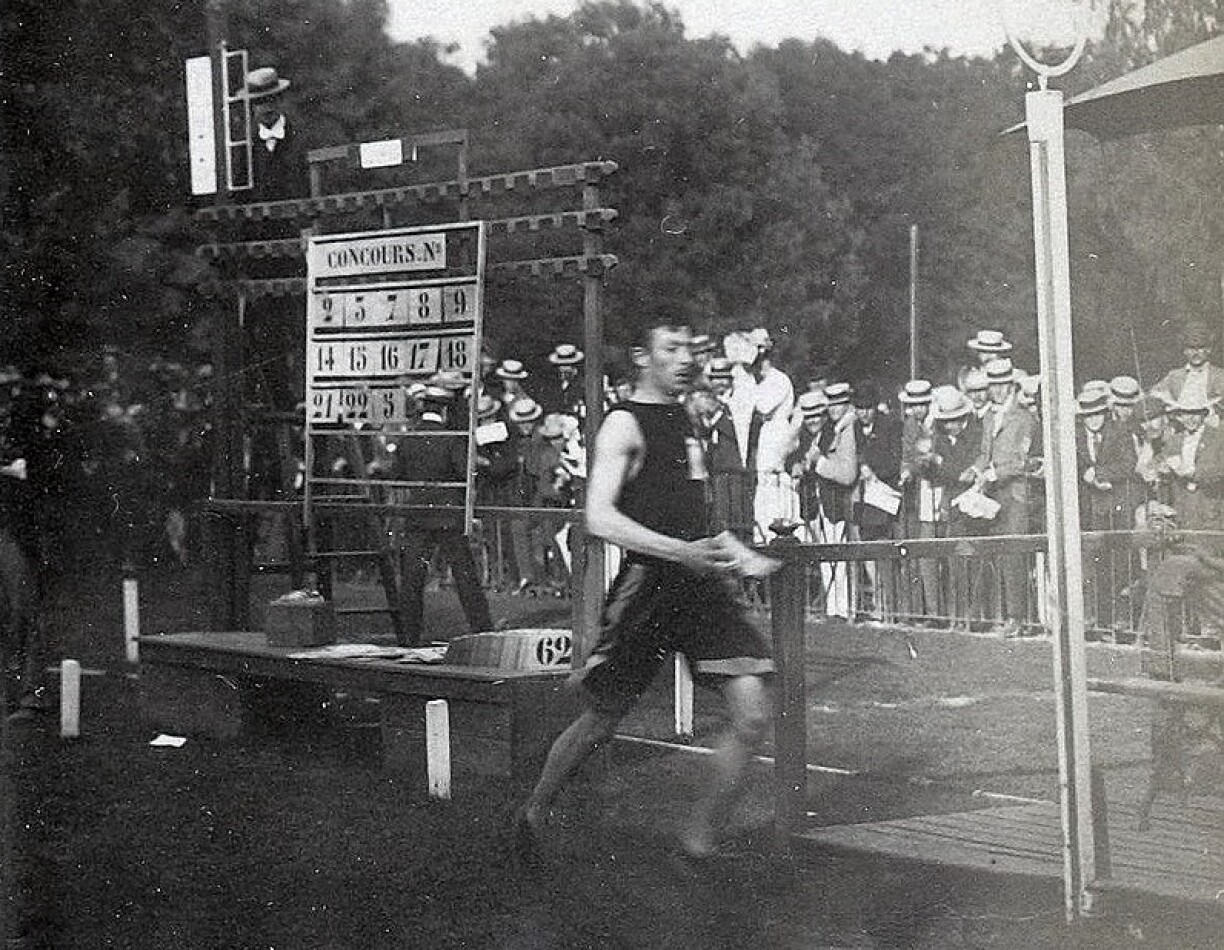
For those eager to revisit past Games, we’re delving into the archives to uncover the remarkable achievements of Luxembourgers on the world’s biggest sporting stage. Let’s begin with the extraordinary story of Michel Théato’s marathon triumph at the Paris 1900 Olympics.
Listen to this episode right here or continue reading down below!
Today, it’s the first episode of a double-header exploring the history of Luxembourg’s participation at the Olympic Games from 1900 to the modern day.
The 1900 Olympic Games in Paris were only the second edition of the modern Olympics, following their revival in Athens in 1896. Held as part of the Paris Exposition, the Games featured 95 events across 19 sports, with 997 athletes from 28 nations.
While familiar disciplines took centre stage, the programme also included unusual events such as croquet, cricket, an underwater obstacle course, and even a live pigeon shooting competition.
But the most dramatic story of the Games unfolded in the marathon, where a Luxembourger took centre stage.
Michel Théato remains a largely obscure figure in Luxembourg. Even in his own time, little was known about him beyond the fact that he lived in Paris and was a member of the local Racing Club, competing for France.
Subsequent research, however, revealed that Théato was born in Luxembourg City in 1878 before moving to Paris via Belgium as a child. He later worked as a cabinetmaker, though a false claim that he was a baker’s delivery boy would fuel controversy after his Olympic win.
Théato passed away in 1919 at just 41 (though some sources suggest 1923). Despite the uncertainty surrounding his life, he left behind a legacy as an Olympic champion.
On 19 July 1900, 19 runners set off from the Olympic stadium into the streets of Paris for the grueling 42-kilometre marathon. With temperatures soaring to 39°C, it remains the hottest Olympic marathon in history and conditions were far from ideal.
Unlike modern marathons, the streets were not closed to traffic, forcing competitors to weave through trams, carts, cyclists, and even herds of sheep and cows on their way to the slaughterhouse. Only seven runners would finish the race.
Frenchman Georges Touquet-Daunis, one of the early leaders, reportedly stopped mid-race for a beer before dropping out due to the oppressive heat. Sweden’s Ernst Fast was also well-placed before taking a wrong turn – allegedly misdirected by a French policeman, who, according to legend, later took his own life out of guilt.
With the field wide open, Michel Théato surged ahead and crossed the finish line in 2:59:45, beating France’s Émile Champion and Sweden’s Fast to claim victory.
Théato’s win was immediately mired in controversy. British and American runners accused him of taking shortcuts through back alleys, supposedly using his knowledge from working as a delivery boy. This claim was later disproved, but the dispute delayed the official recognition of his gold medal until 1912.
Another controversy surrounded Théato’s nationality. Though he competed under a French licence and lived in Saint-Mandé on the outskirts of Paris, his Luxembourgish birth sparked a long-standing dispute.
The Grand Duchy lodged official complaints with the International Olympic Committee in both 2004 and 2014, petitioning for Théato’s record to be amended to reflect his Luxembourgish origins. Each time, the request was denied.
However, Luxembourg did have an Olympic champion, Josy Barthel – its only Olympic gold medallist.
Thank you for tuning in! Now what are you waiting for – download and listen, on iTunes, Spotify, or wherever you get your podcasts.